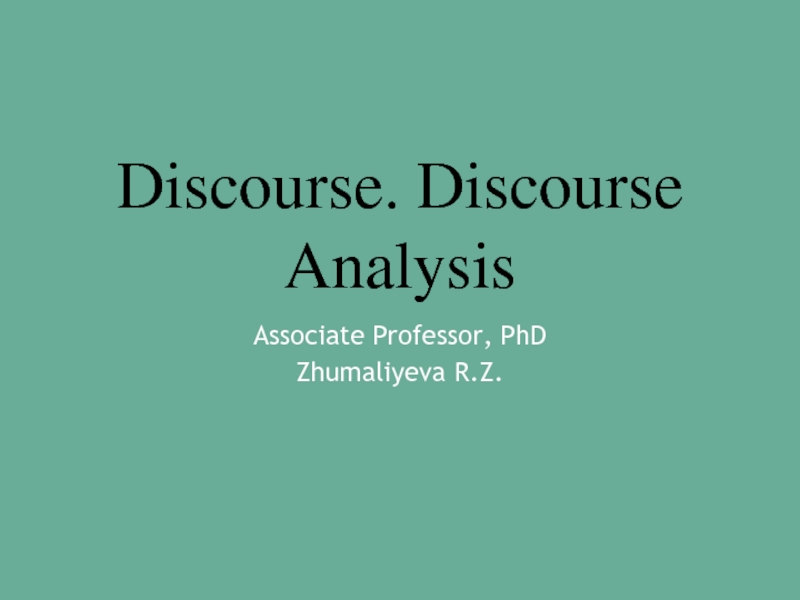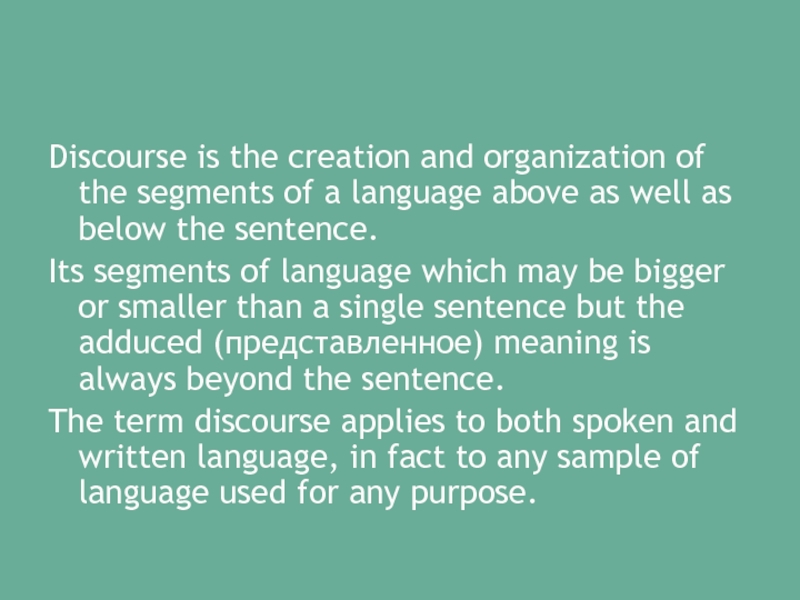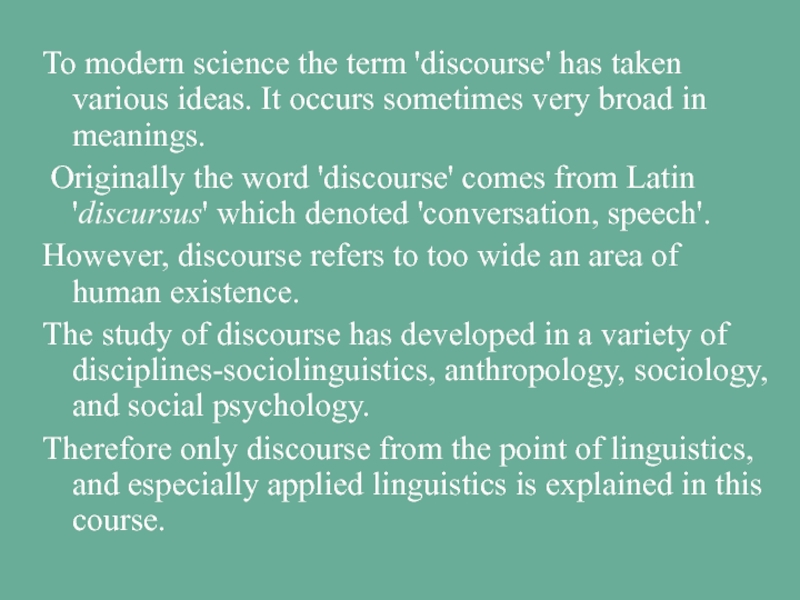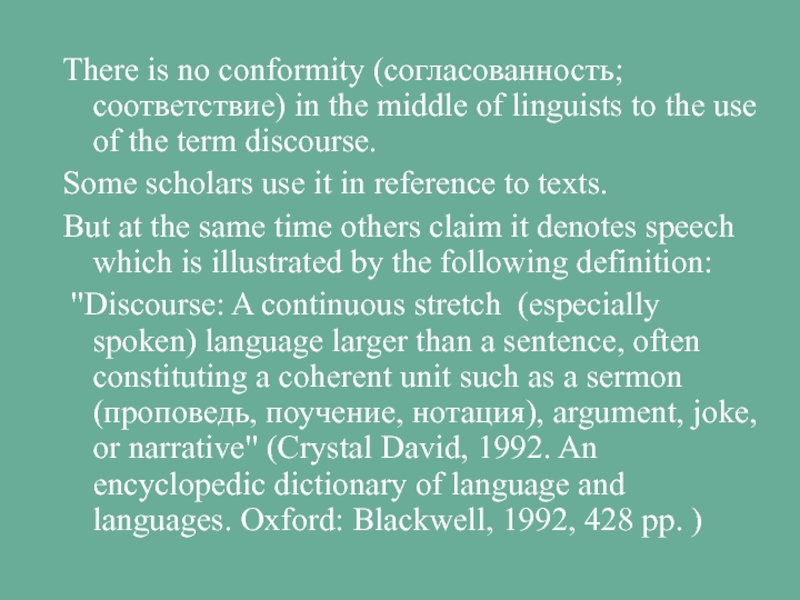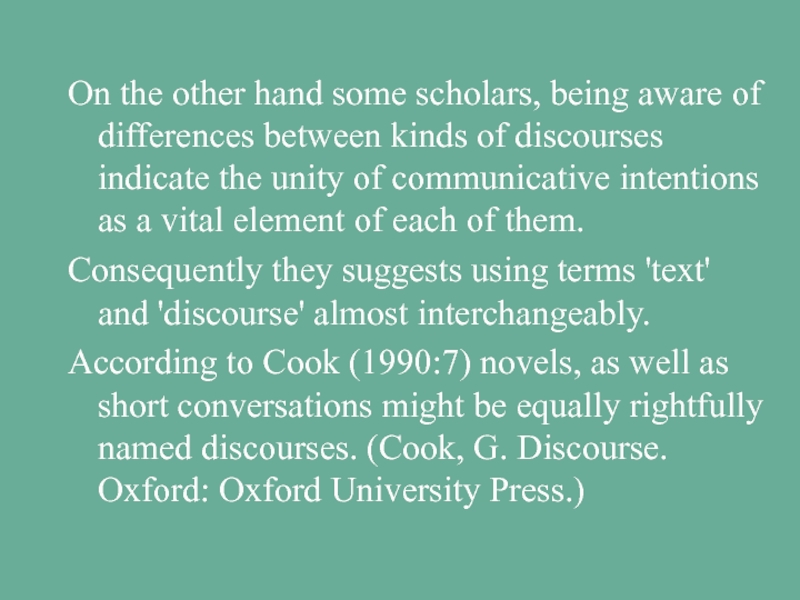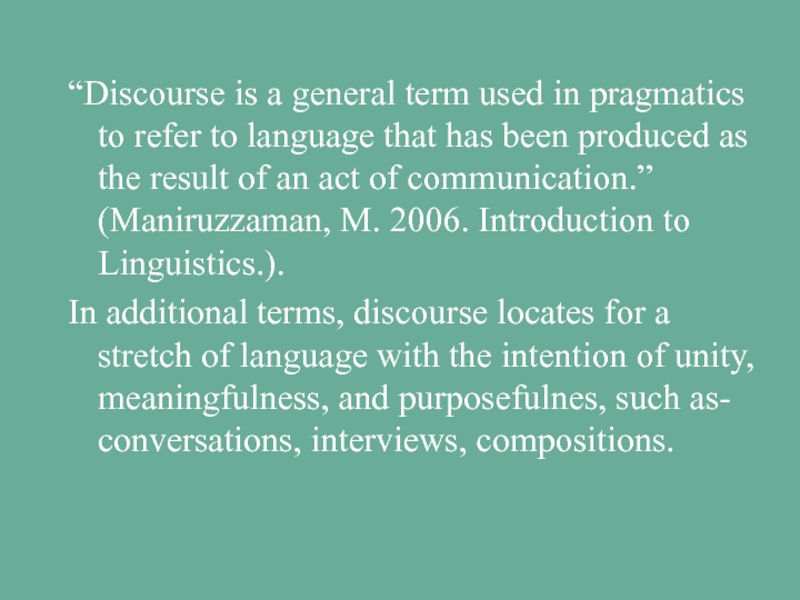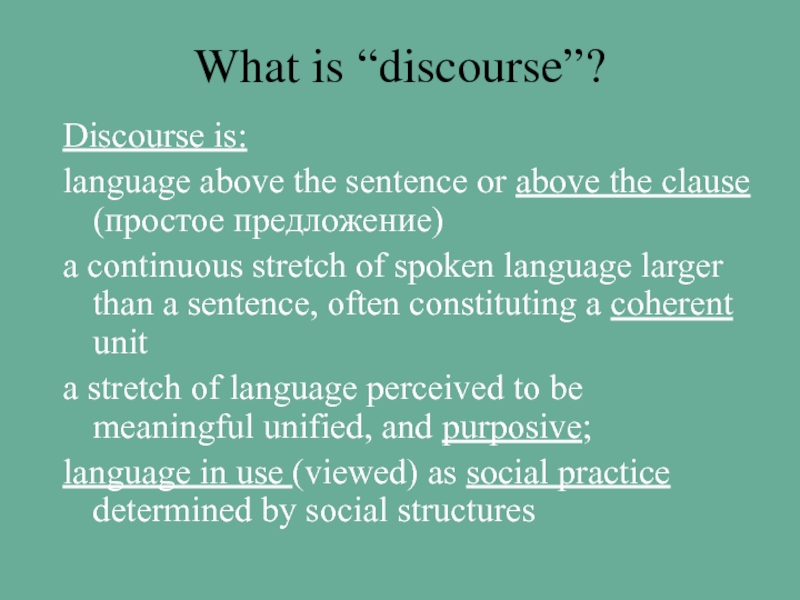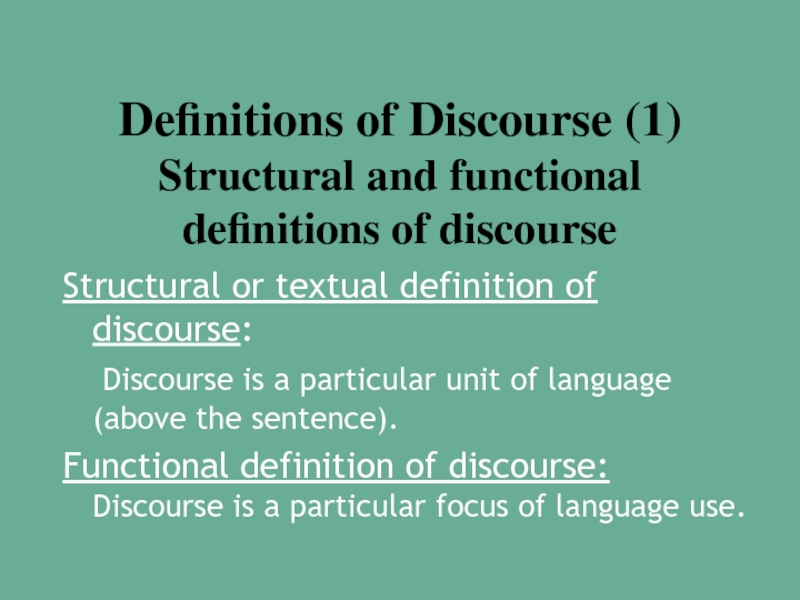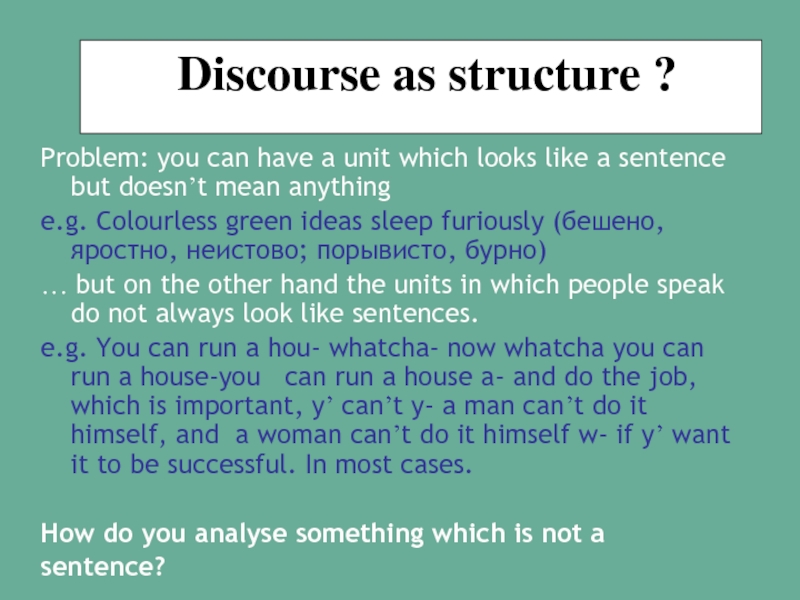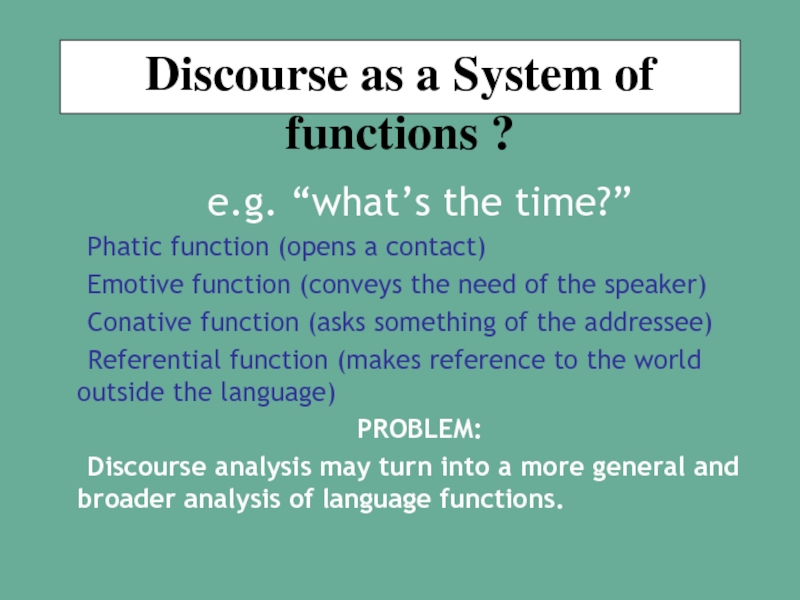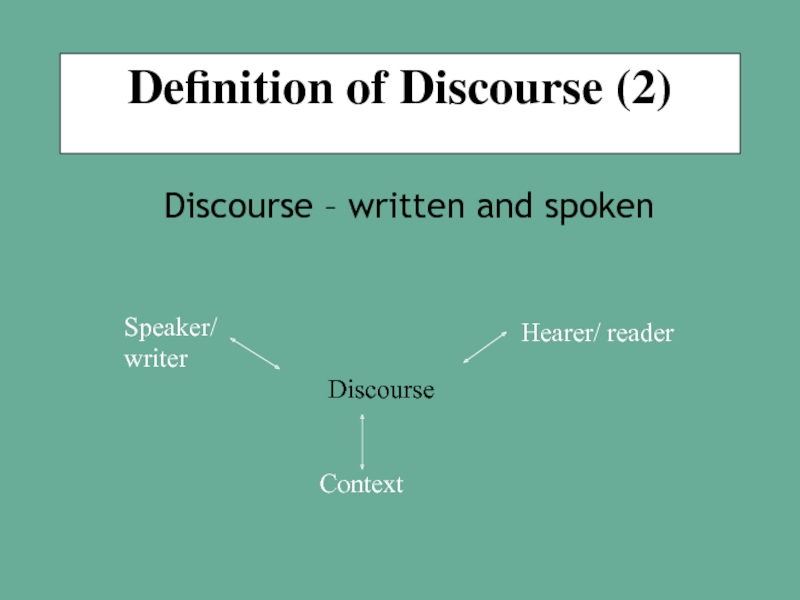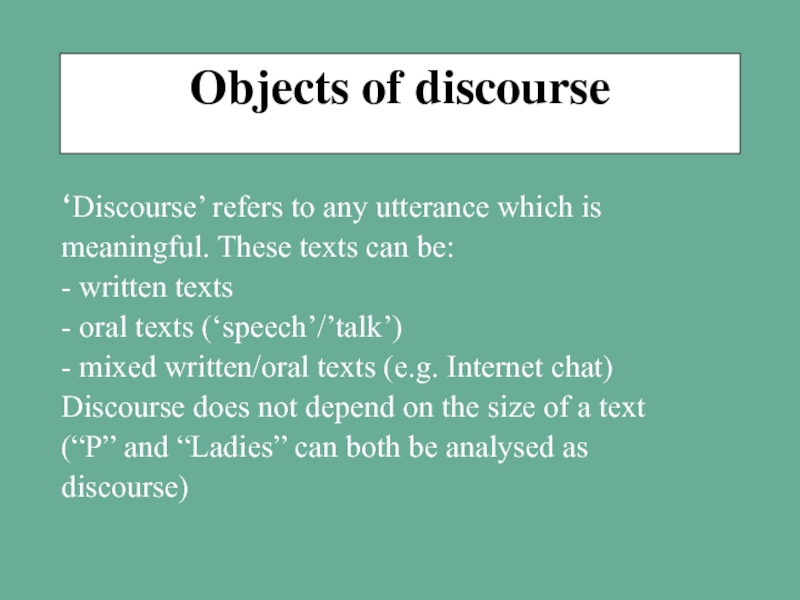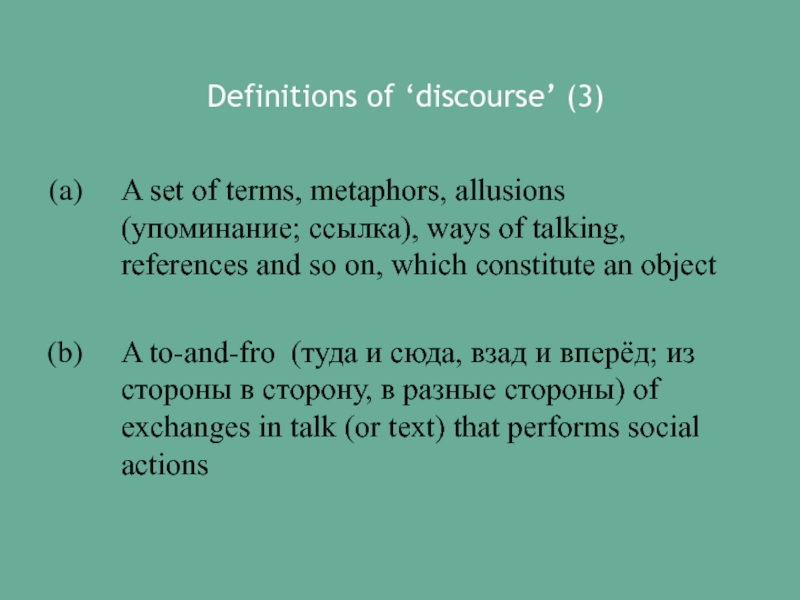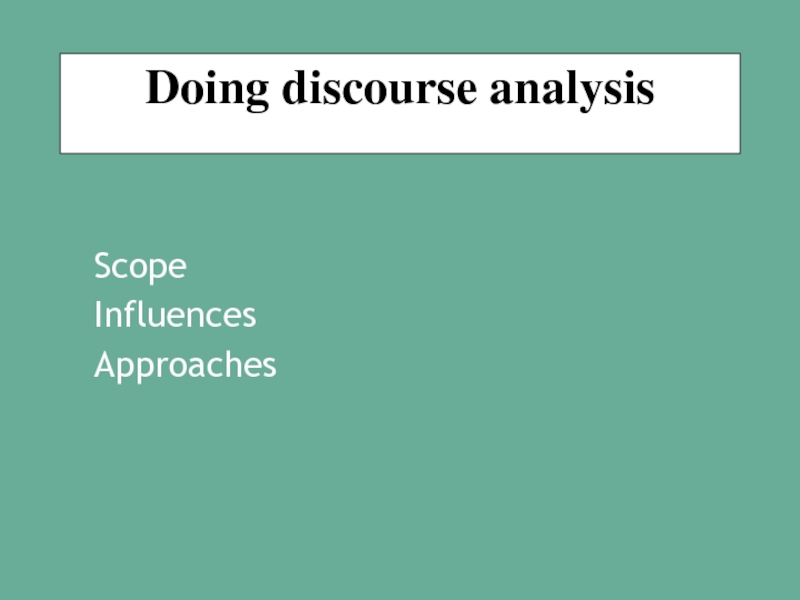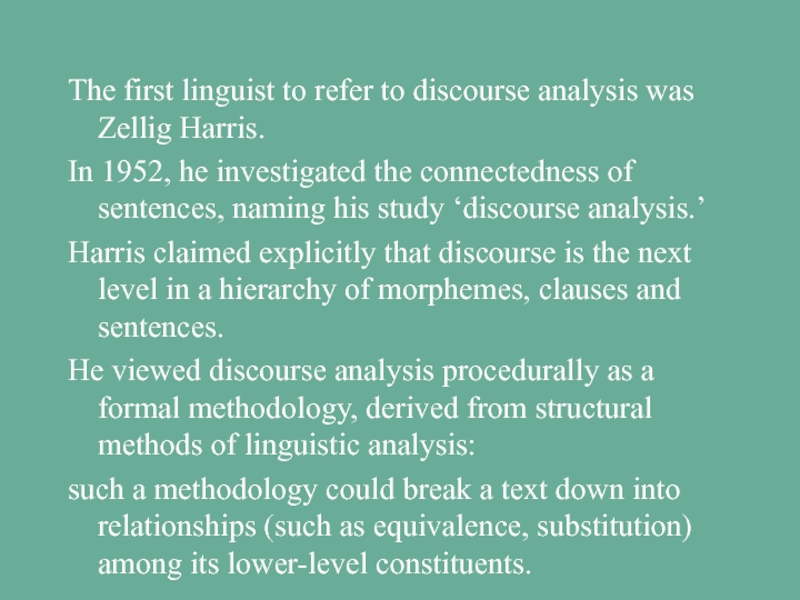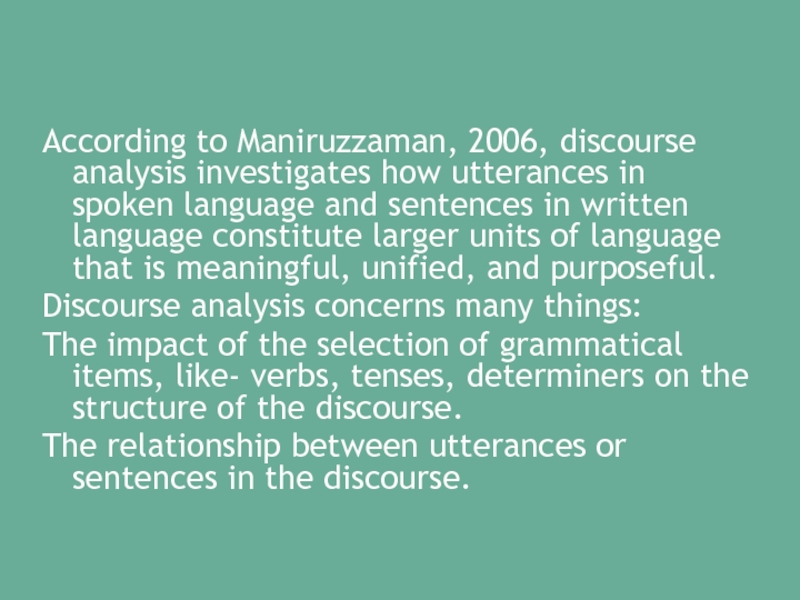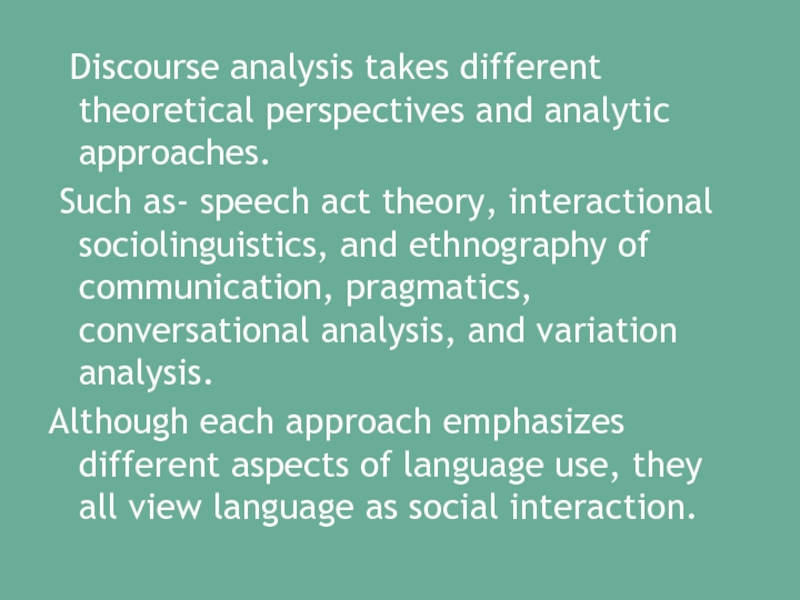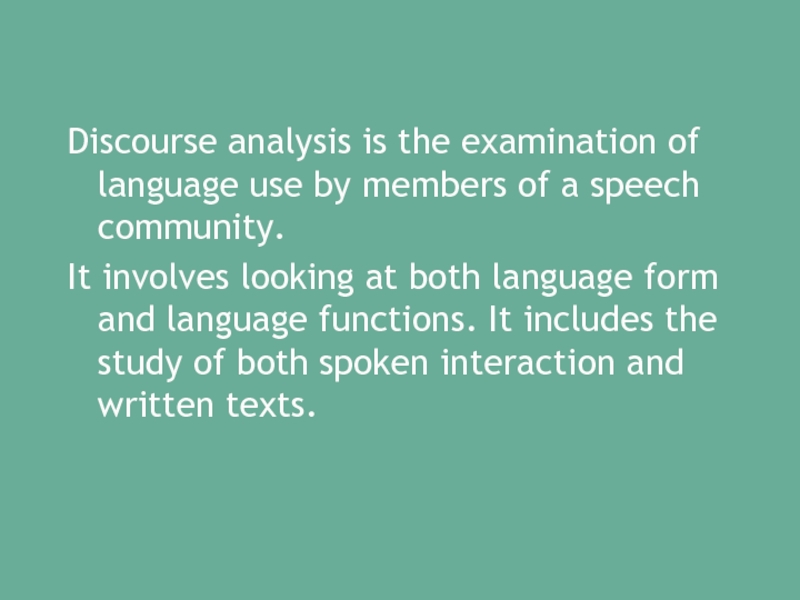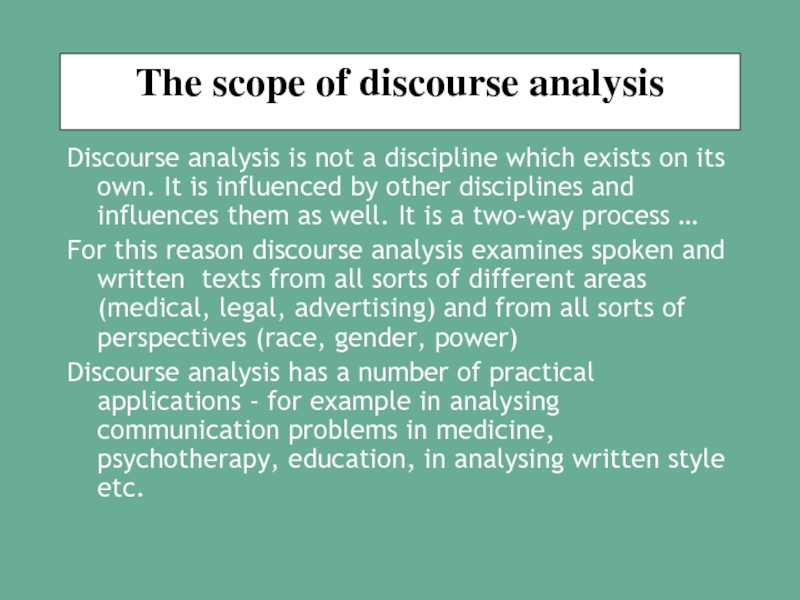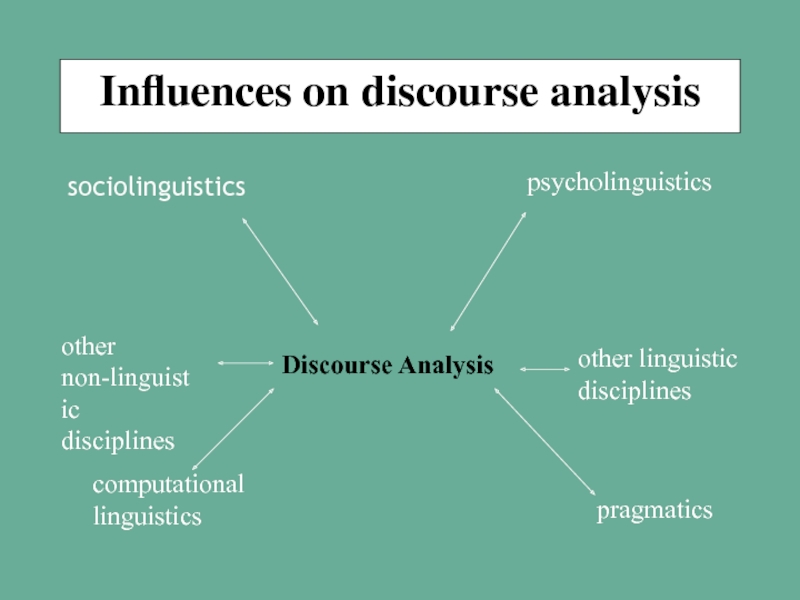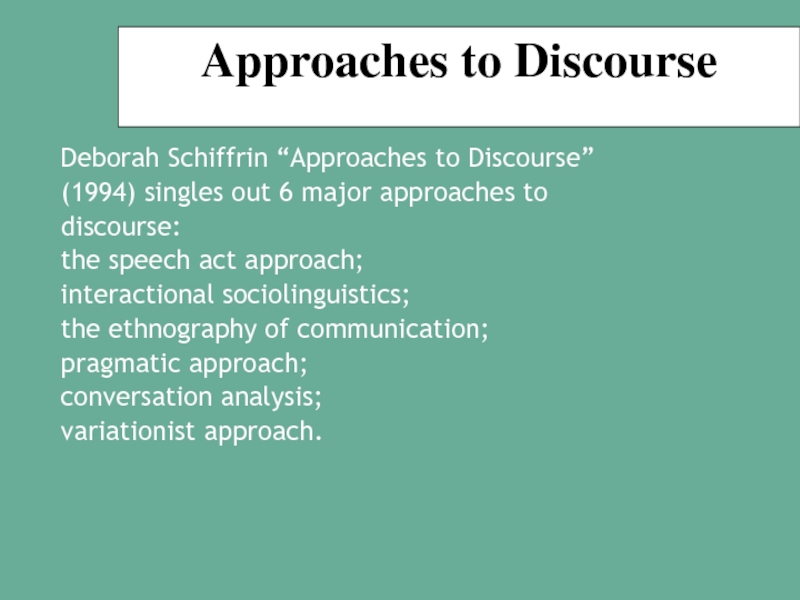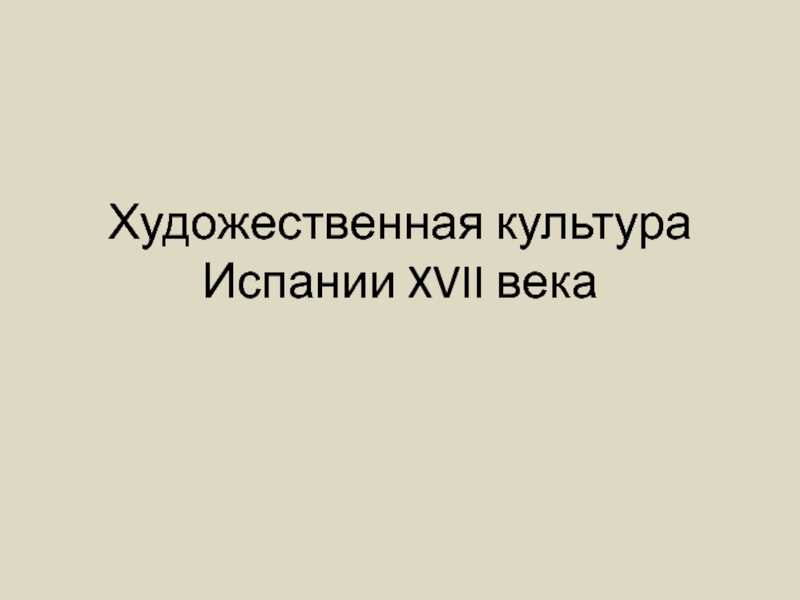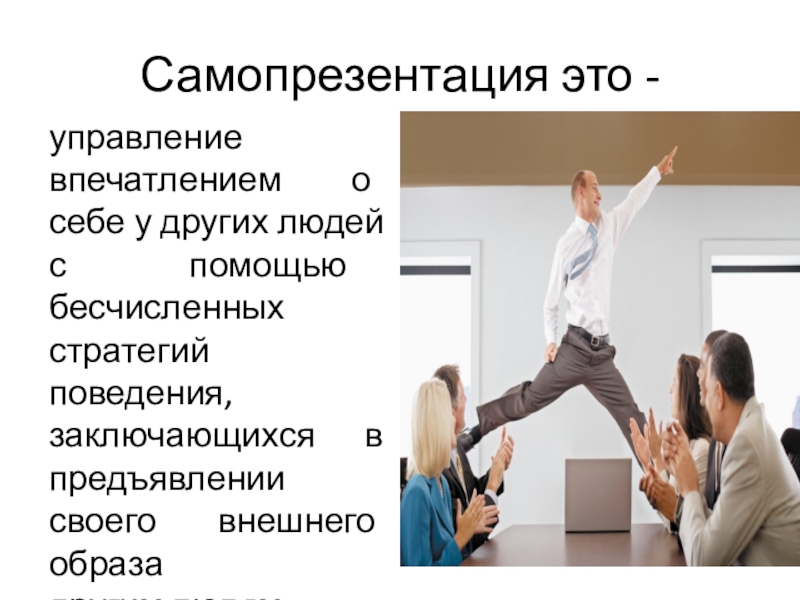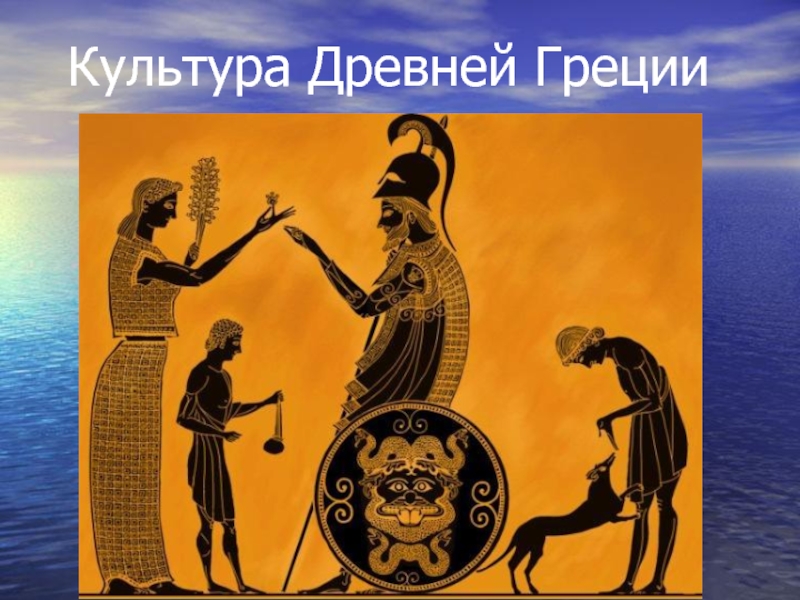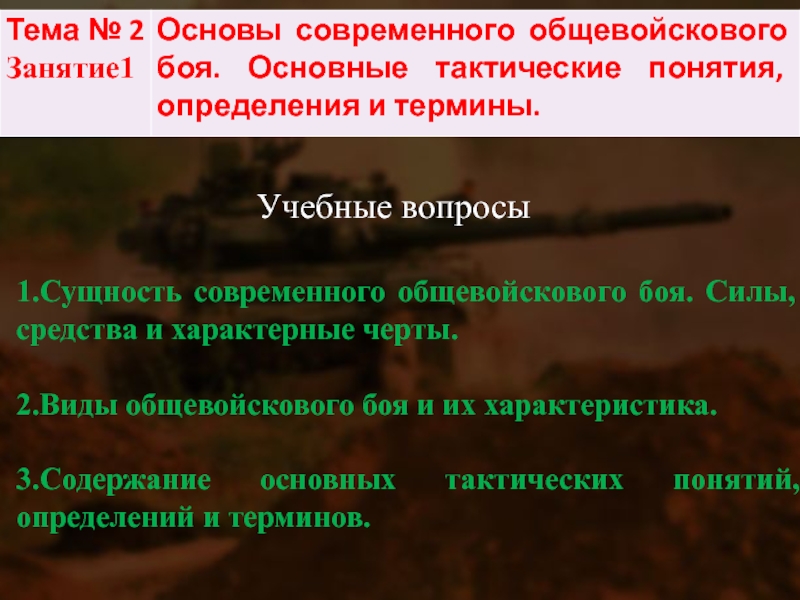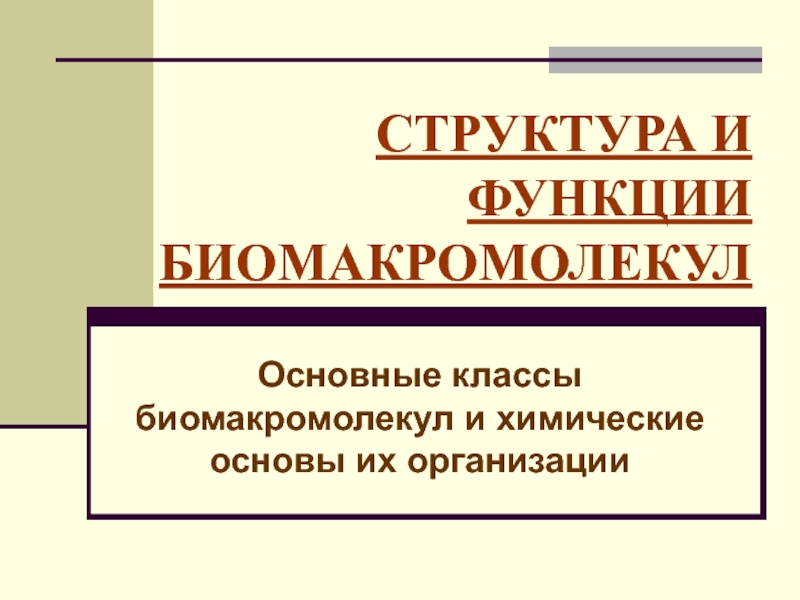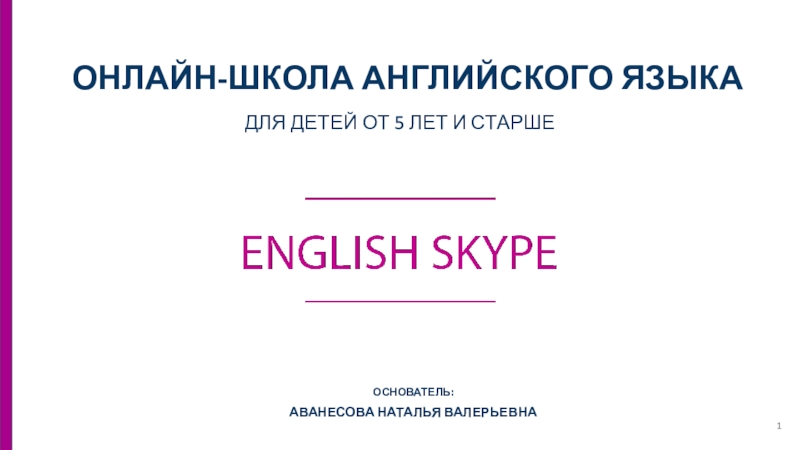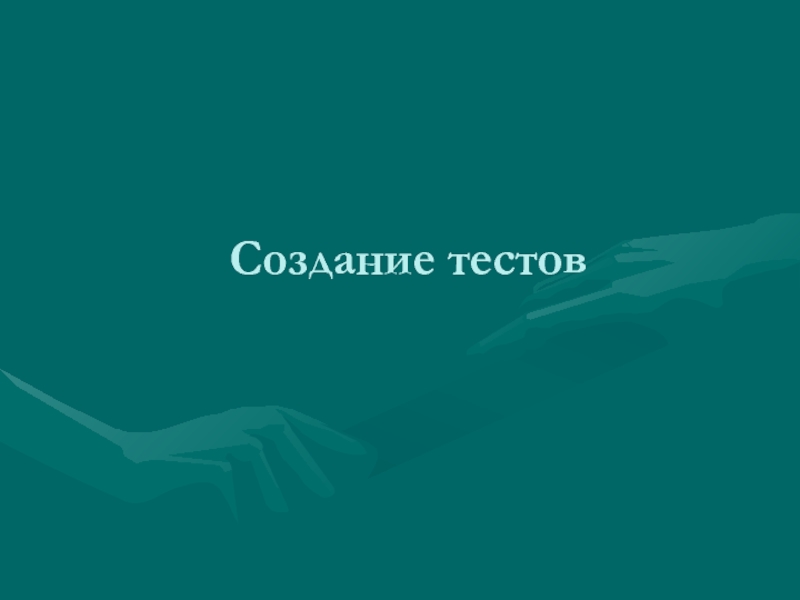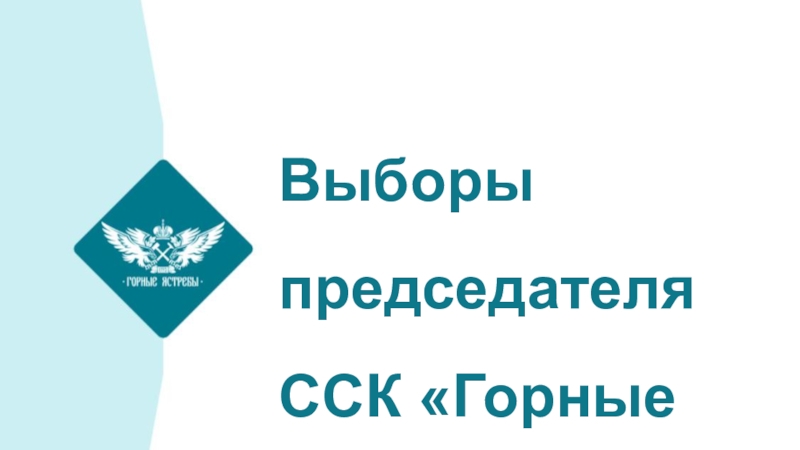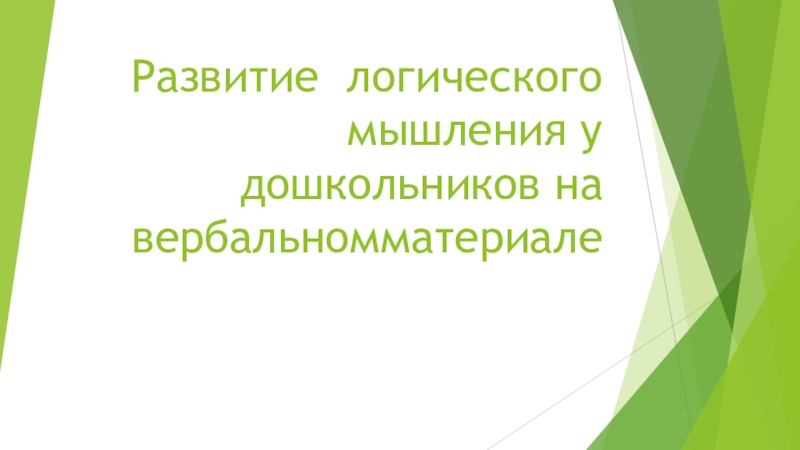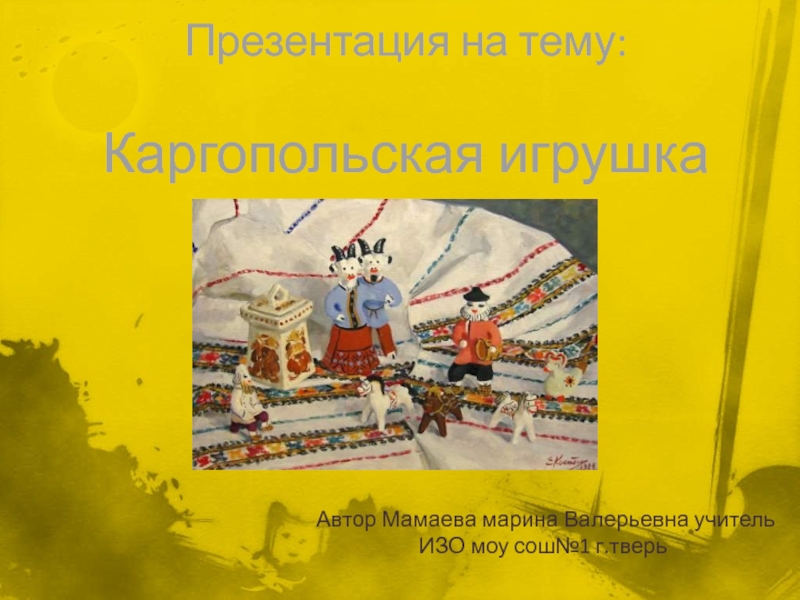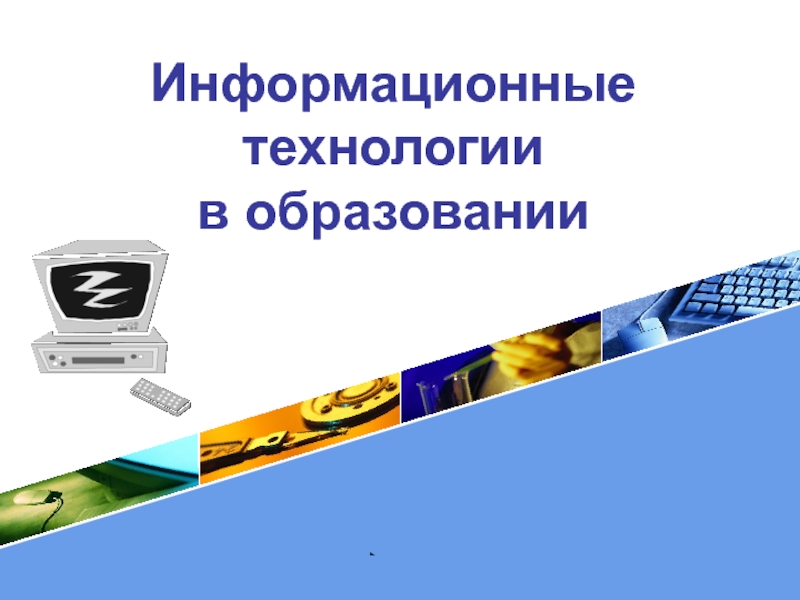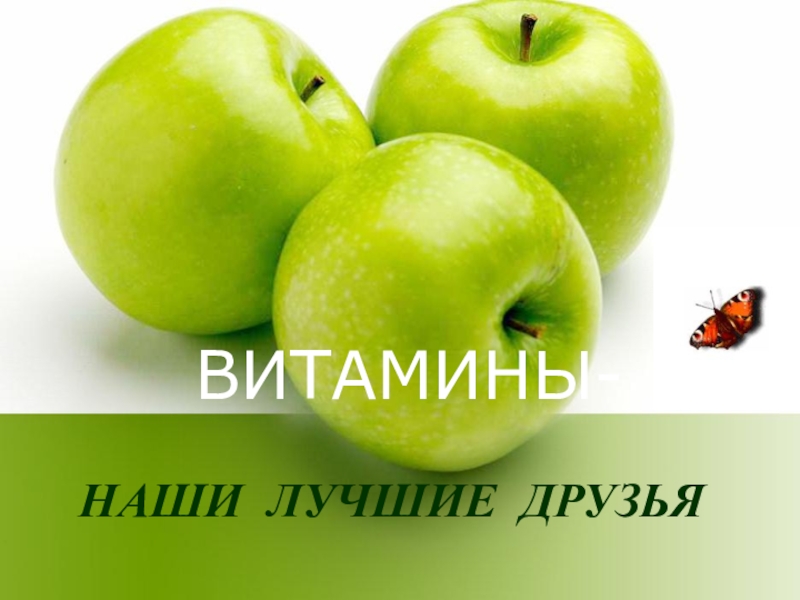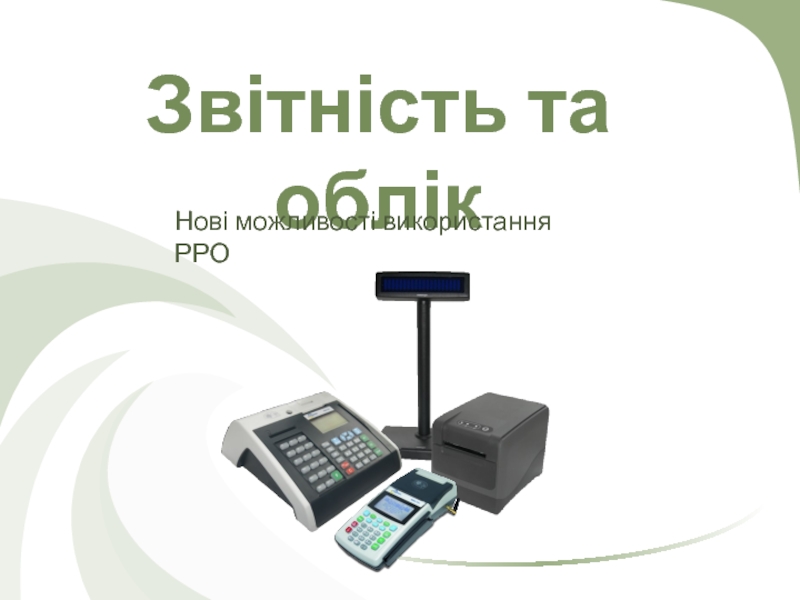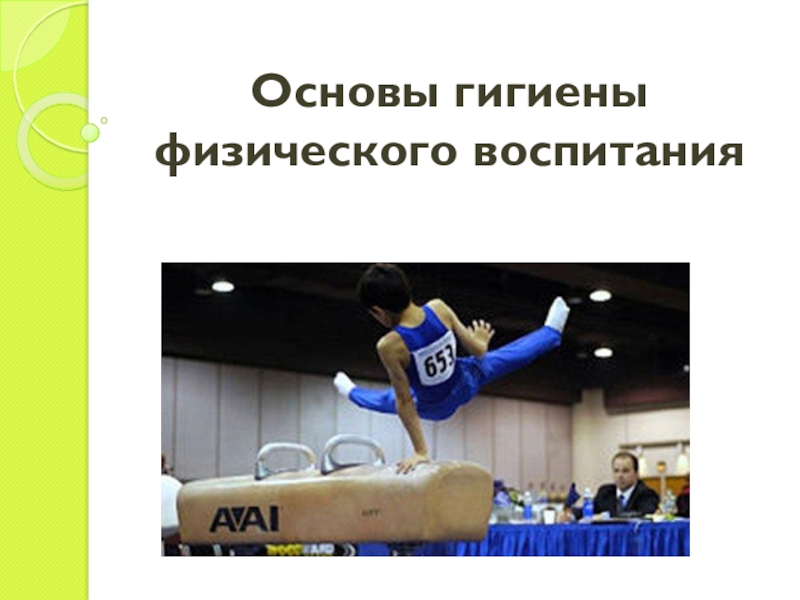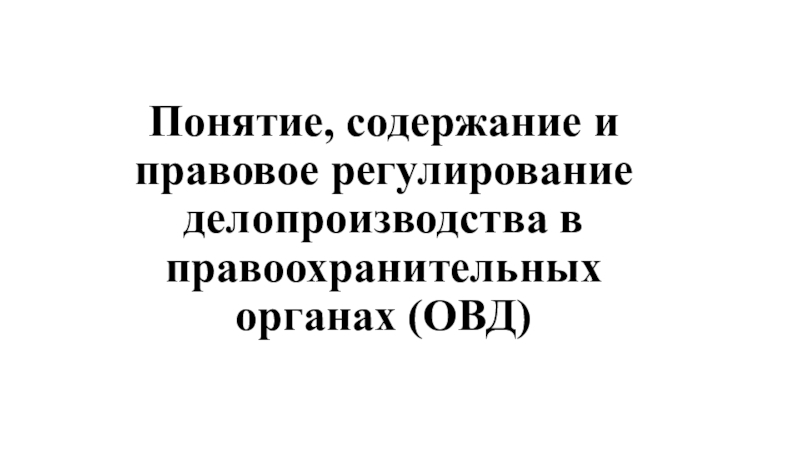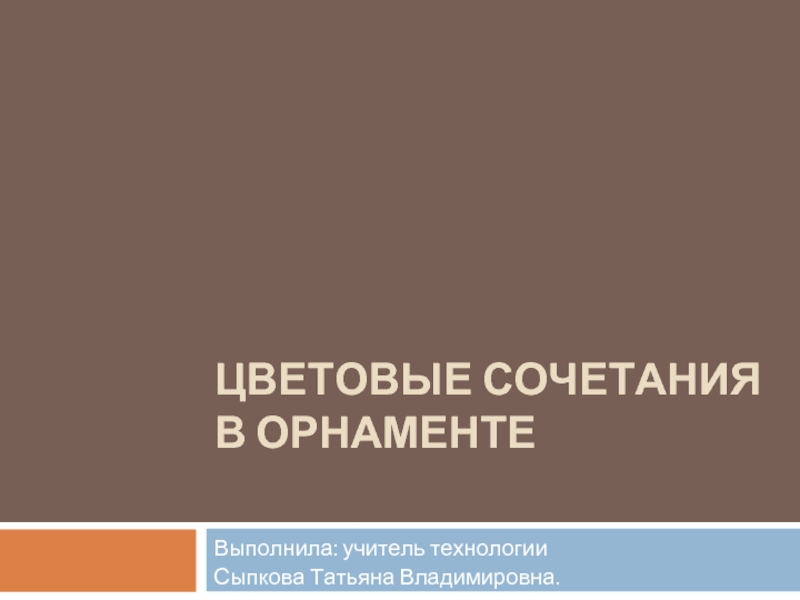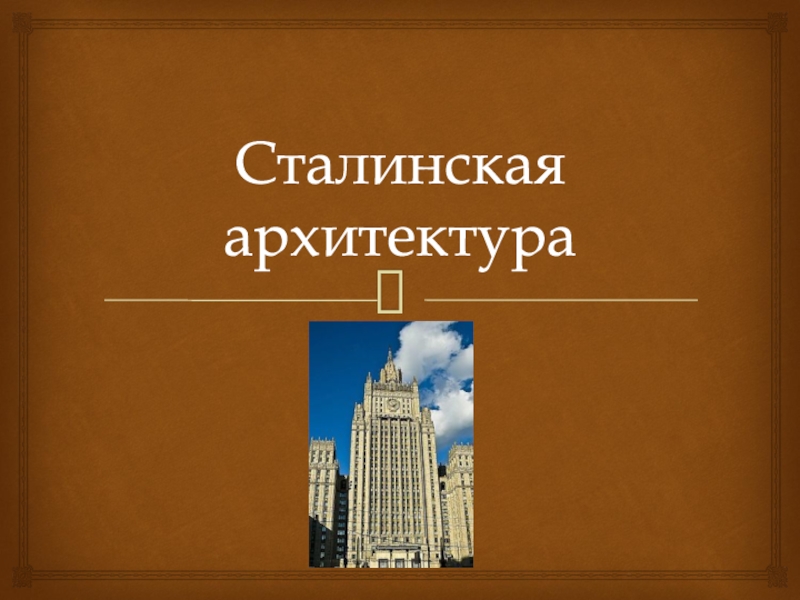Слайд 1Discourse. Discourse Analysis
Associate Professor, PhD
Zhumaliyeva R.Z.
Слайд 2Discourse is the creation and organization of the segments of
a language above as well as below the sentence.
Its
segments of language which may be bigger or smaller than a single sentence but the adduced (представленное) meaning is always beyond the sentence.
The term discourse applies to both spoken and written language, in fact to any sample of language used for any purpose.
Слайд 3To modern science the term 'discourse' has taken various ideas.
It occurs sometimes very broad in meanings.
Originally the word
'discourse' comes from Latin 'discursus' which denoted 'conversation, speech'.
However, discourse refers to too wide an area of human existence.
The study of discourse has developed in a variety of disciplines-sociolinguistics, anthropology, sociology, and social psychology.
Therefore only discourse from the point of linguistics, and especially applied linguistics is explained in this course.
Слайд 4There is no conformity (согласованность; соответствие) in the middle of
linguists to the use of the term discourse.
Some scholars
use it in reference to texts.
But at the same time others claim it denotes speech which is illustrated by the following definition:
"Discourse: A continuous stretch (especially spoken) language larger than a sentence, often constituting a coherent unit such as a sermon (проповедь, поучение, нотация), argument, joke, or narrative" (Crystal David, 1992. An encyclopedic dictionary of language and languages. Oxford: Blackwell, 1992, 428 pp. )
Слайд 5On the other hand some scholars, being aware of differences
between kinds of discourses indicate the unity of communicative intentions
as a vital element of each of them.
Consequently they suggests using terms 'text' and 'discourse' almost interchangeably.
According to Cook (1990:7) novels, as well as short conversations might be equally rightfully named discourses. (Cook, G. Discourse. Oxford: Oxford University Press.)
Слайд 6“Discourse is a general term used in pragmatics to refer
to language that has been produced as the result of
an act of communication.” (Maniruzzaman, M. 2006. Introduction to Linguistics.).
In additional terms, discourse locates for a stretch of language with the intention of unity, meaningfulness, and purposefulnes, such as- conversations, interviews, compositions.
Слайд 7What is “discourse”?
Discourse is:
language above the sentence or above the
clause (простое предложение)
a continuous stretch of spoken language larger than
a sentence, often constituting a coherent unit
a stretch of language perceived to be meaningful unified, and purposive;
language in use (viewed) as social practice determined by social structures
Слайд 8
Definitions of Discourse (1) Structural and functional definitions
of discourse
Structural or textual definition of discourse:
Discourse is a particular
unit of language (above the sentence).
Functional definition of discourse: Discourse is a particular focus of language use.
Слайд 9 Discourse as structure ?
Problem: you can have a unit
which looks like a sentence but doesn’t mean anything
e.g. Colourless
green ideas sleep furiously (бешено, яростно, неистово; порывисто, бурно)
… but on the other hand the units in which people speak do not always look like sentences.
e.g. You can run a hou- whatcha- now whatcha you can run a house-you can run a house a- and do the job, which is important, y’ can’t y- a man can’t do it himself, and a woman can’t do it himself w- if y’ want it to be successful. In most cases.
How do you analyse something which is not a
sentence?
Слайд 10Discourse as a System of functions ?
e.g. “what’s the time?”
Phatic
function (opens a contact)
Emotive function (conveys the need of the
speaker)
Conative function (asks something of the addressee)
Referential function (makes reference to the world outside the language)
PROBLEM:
Discourse analysis may turn into a more general and broader analysis of language functions.
Слайд 11Definition of Discourse (2)
Discourse –
written and spoken
Discourse
Speaker/ writer
Hearer/ reader
Context
Слайд 12Objects of discourse
‘Discourse’ refers to any utterance which is
meaningful. These
texts can be:
- written texts
- oral texts (‘speech’/’talk’)
- mixed written/oral
texts (e.g. Internet chat)
Discourse does not depend on the size of a text
(“P” and “Ladies” can both be analysed as
discourse)
Слайд 13Definitions of ‘discourse’ (3)
A set of terms, metaphors, allusions (упоминание;
ссылка), ways of talking, references and so on, which constitute
an object
A to-and-fro (туда и сюда, взад и вперёд; из стороны в сторону, в разные стороны) of exchanges in talk (or text) that performs social actions
Слайд 14Doing discourse analysis
Scope
Influences
Approaches
Слайд 15The first linguist to refer to discourse analysis was Zellig
Harris.
In 1952, he investigated the connectedness of sentences, naming
his study ‘discourse analysis.’
Harris claimed explicitly that discourse is the next level in a hierarchy of morphemes, clauses and sentences.
He viewed discourse analysis procedurally as a formal methodology, derived from structural methods of linguistic analysis:
such a methodology could break a text down into relationships (such as equivalence, substitution) among its lower-level constituents.
Слайд 16According to Maniruzzaman, 2006, discourse analysis investigates how utterances in
spoken language and sentences in written language constitute larger units
of language that is meaningful, unified, and purposeful.
Discourse analysis concerns many things:
The impact of the selection of grammatical items, like- verbs, tenses, determiners on the structure of the discourse.
The relationship between utterances or sentences in the discourse.
Слайд 17 Discourse analysis takes different theoretical perspectives and analytic approaches.
Such as- speech act theory, interactional sociolinguistics, and ethnography
of communication, pragmatics, conversational analysis, and variation analysis.
Although each approach emphasizes different aspects of language use, they all view language as social interaction.
Слайд 18
Discourse analysis is the examination of language use by members
of a speech community.
It involves looking at both language
form and language functions. It includes the study of both spoken interaction and written texts.
Слайд 19The scope of discourse analysis
Discourse analysis is not a discipline
which exists on its own. It is influenced by other
disciplines and influences them as well. It is a two-way process …
For this reason discourse analysis examines spoken and written texts from all sorts of different areas (medical, legal, advertising) and from all sorts of perspectives (race, gender, power)
Discourse analysis has a number of practical applications - for example in analysing communication problems in medicine, psychotherapy, education, in analysing written style etc.
Слайд 20Influences on discourse analysis
sociolinguistics
Discourse Analysis
psycholinguistics
computational linguistics
pragmatics
other non-linguistic disciplines
other linguistic disciplines
Слайд 21Approaches to Discourse
Deborah Schiffrin “Approaches to Discourse”
(1994) singles out 6
major approaches to
discourse:
the speech act approach;
interactional sociolinguistics;
the ethnography of
communication;
pragmatic approach;
conversation analysis;
variationist approach.
